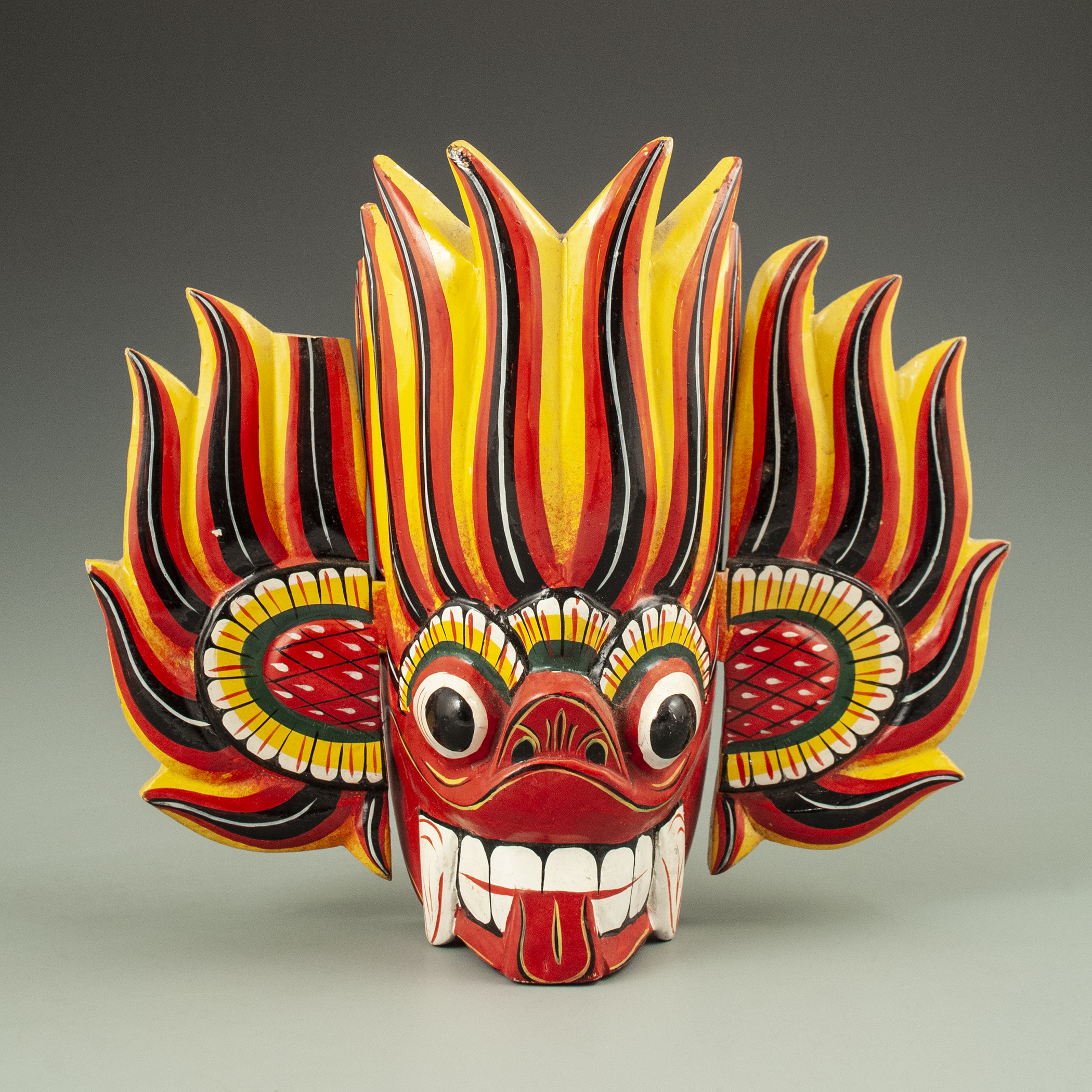Small Demon Mask
Sri Lanka, 1984

Late one night, as I walked along Sri Lanka’s west coast, I was drawn away from the seashore by the distant beating of drums. As I approached its source the sound swelled, filling the humid air with locomotive force. Soon I found myself at the edge of a crowded, torch-lit clearing. The drummers crouched on one side, illuminated by torches, entranced by their own rhythms.
An exorcism had begun. The elderly victim sat off-center, wrapped in a white shawl. A tightly-bound rooster lay by his side. The rite was being performed, I learned, to free the man from recurrent headaches: the curse of a demon.
The ceremony continued through the night, a riot of sound and fire. The exorcist whirled batons of flame; he then donned a series of masks and, showing impressive theatrical chops, enacted a series of scenes and dances. He carried the crowd to manic laughter, then jarred us back to earth with fearsome changes in temperament.
As the stars vanished, the shaman completed his ritual. He ducked briefly behind a canvas curtain—and sprang out again with a roar. Eyes popping, tongue extended, he leaped into the air. Torches flared, and the drums exploded in a nearly deafening cadence. With all the evil power condensed in his body the shaman/demon, exorcised and rampant, threw himself upon his sacrificial prize. Horrible squawks pierced the air as he tore the rooster apart. Feathers flew, blood spattered, and the sun broke over the nearby sea.
Nearly four decades have passed, but the events of that night return to haunt me. Ever since publishing a book about my brother’s suicide in 2010, I too have felt possessed. It’s as if some vengeful aspect of Jordan, resentful of his portrayal in Snake Lake, has entered my body to share a taste of his affliction. I often think about how far I would go to evict that demon—if I could convince myself that such a rite made sense. But I wonder what sort of sacrifice I might be willing to offer; my cock is not the prize it once was.
